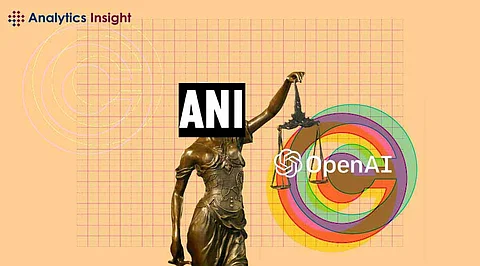

ANI, the Asian News International that serves as one of the biggest news providers in India, has filed a case against OpenAI and its ChatGPT model in the New Delhi High Court. ANI alleges that OpenAI violated copyright laws by copying ANI’s content to train the chatbot ChatGPT.
This litigation is one of several legal cases against the AI company brought by worldwide media organizations, including The New York Times and the Chicago Tribune, which raises critical questions about rights infringement and AI creation. As ANI’s assertion, OpenAI failed to obtain a legal permit for the content’s use, which also included news posts and different reports.
Additionally, ANI contends that OpenAI's use of its content for chatbot training is a violation of its copyrights. Noting the content is embedded into ChatGPT. The agency also claims this has resulted in the generation of stories attributed to them, tarnishing their image.
While OpenAI has stated that future use of ANI’s content has been disabled since September, ANI argues there is no way to remove previously fed data from ChatGPT. The next date set by the court is January 28, 2024, and OpenAI should respond comprehensively to such claims.
OpenAI has recently provided its stance with regard to content usage by stating that their model training is legal and falls under the applicable fair use doctrines and similar others. The company has also expounded that it has stopped using ANI’s content for additional AI training.
OpenAI claims its methods are in compliance with legal cases and that it is currently in the process of obtaining licensing agreements with other content providers, meaning OpenAI is willing to respect the copyrights of content.
Moreover, the Consequences for the AI Industry raise a question of how the technological advancements of the AI sector apply to copyrighted material. With the advancement and adoption of AI systems, the issue of fair pay and proper credit for content creators has increased.
The result of the case could determine further commitments regulating the usage of AI and the guidelines concerning the protection of copyrights, that will impact the AI firms all over the world. The implications for the tech industry related to the training and development of AI are vast as well as the legal and ethical aspect.
